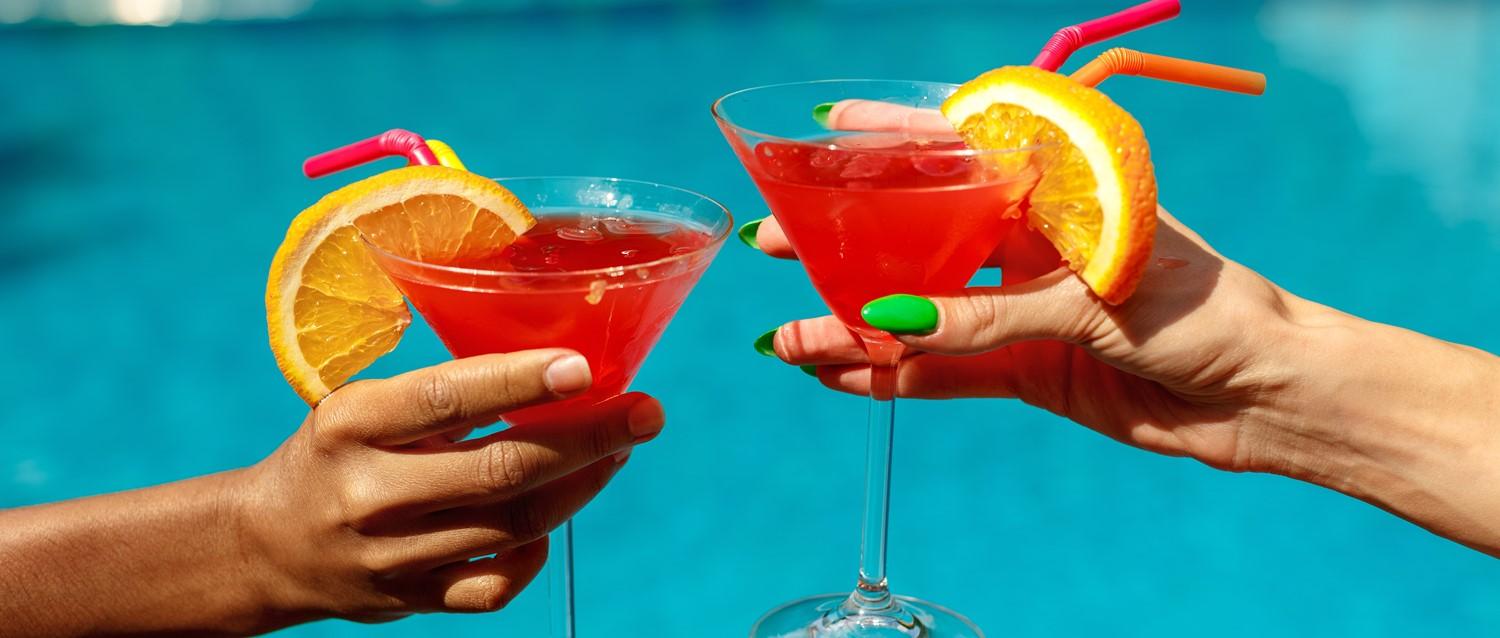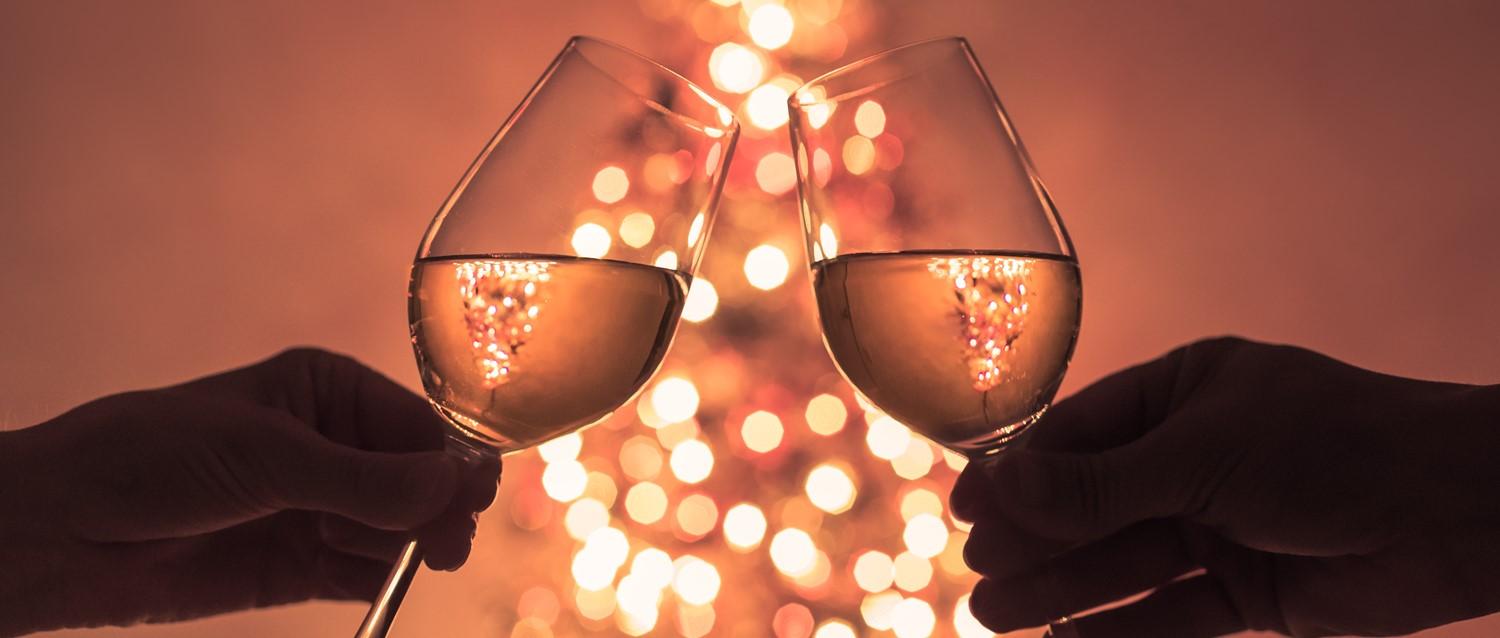
Trinken in der Sonne: ein gefährlicher Cocktail
Peer reviewed by Dr Krishna Vakharia, MRCGPAuthored by Emily Jane BashforthOriginally published 20 Aug 2022
Erfüllt die Anforderungen des Patienten redaktionelle Richtlinien
- HerunterladenHerunterladen
- Teilen Sie
- Sprache
- Diskussion
Stellen Sie sich vor, es ist ein heißer, sonniger Tag und Sie spazieren durch den Park oder vielleicht an einem Strand entlang. Wahrscheinlich sehen Sie Menschen, die mit ihren Freunden Alkohol trinken. Aber wussten Sie, dass das Trinken in der Sonne mit einer Reihe von Risiken verbunden sein kann?
In diesem Artikel:
Lesen Sie unten weiter
What are the potential risks of drinking in the sun?
Dehydrierung
Both alcohol and heat can cause dehydration, and consuming alcohol causes you to urinate more frequently. This is because alcohol is a diuretic, which means it causes the body to lose water through urine by inhibiting the production of the vasopressin hormone.
Plus, the heat from the sun can cause you to sweat more. The quantity of sweat produced can be as high as a couple of litres, depending on the heat and your activity levels. This can cause your body to lose fluids and lead to dehydration.
Dr Deborah Lee of Dr Fox Online Pharmacy explains that dehydration can have serious consequences for your health. Even if you are just 1-2% dehydrated this can make you feel sluggish and tired.
Weitere Anzeichen für Dehydrierung sind:
Kopfschmerzen.
Muskelkrämpfe.
Trockener Mund/trockene Lippen.
Schälende Haut.
Verstopfung.
Feeling dizzy or faint.
Dehydrierung ist ebenfalls eine der Hauptursachen für Kater-Symptome.
Überhitzung
While it might be tempting to indulge in alcoholic beverages during the hot weather, alcohol and sunshine are not a good mix. Especially if the amount you've consumed makes you tipsy, or drunk, and unaware of how long you've been in the sun.
"Sitting in the sun means you are at increased risk of overheating, which has the potential to become heat exhaustion and ultimately, heatstroke," explains Dr Lee.
Did you know that each year in England and Wales, there are on average nearly 800 excess deaths associated with heat?1
"Being too hot puts strain on your heart too, increasing the risk of strokes and heart attacks."
Schädigung der Haut
It's possible you will ignore the dangers of the sun's UV rays on your skin if you aren't thinking clearly due to alcohol consumption. But, protecting your skin from the sun is important, both by wearing at least SPF 30 and seeking shade.
Excess sunlight exposure damages skin by accelerating the changes of ageing, causing loss of elasticity, wrinkling, and sagging.
In addition, excess sunlight exposure is strongly linked to the development of both melanoma and non-melanoma skin cancers.
Precautions to take when drinking in the sun
Let's be realistic - abstaining from alcohol completely during the hot summer months is difficult. However, if you are planning on drinking in the sun, you should think sensibly about it beforehand.
Dr Lee says that mindful drinking is growing in popularity. This means deciding what you will drink and sticking to the plan when going out. This helps to prevent excess consumption of alcohol and the associated risks.
"You also need to make sure you drink plenty of water. Drink one large glass of water for each alcoholic drink and keep a refillable water bottle handy if you are out and about," she adds. You can buy bottles that are specially designed to keep your drinks cold.
Weitere Tipps für sicheres Trinken in der Sonne sind:
Dilute your alcohol
For example, you could add soda water to a small amount of white wine to make a white wine spritzer, or add ice cubes.
Go at a steady pace
Spread out your alcoholic drinks and drink non-alcoholic drinks in between. These might be juices or water, but you may also want to explore the wide range of non-alcoholic alternatives on the market.
Avoid mixing your drinks
Drinks such as red wine, brandy, and whisky contain more congeners (substances added to alcohol to give it a reddish colour, flavour and texture). Dr Lee says these are often the main culprits when it comes to a hangover. If you are drinking, it might be wise to stick to white or clear drinks, such as white wine, gin, or vodka.
"Sparkling wines, such as champagne and prosecco, will make you feel drunk more quickly, as the bubbles facilitate the absorption of alcohol in the stomach."
Keep eating
You should never drink alcohol on an empty stomach. Food helps to delay the absorption of alcohol into the bloodstream and protects the stomach lining. Drinking without eating first also intensifies side effects.
Suchen Sie den Schatten auf
Most of us like to sit in the sun, especially as, historically, sunny days have tended to be few and far between in the UK. But your body will thank you if you make time for the shade too and reduce your chances of heat exhaustion. If there's an opportunity for you to take a dip in a swimming pool or have a cold bath/shower, this can help you keep cool.
Wenn Sie in der Sonne trinken, sollten Sie außerdem weiterhin die üblichen Sonnenschutzmaßnahmen befolgen:
Kühle, locker sitzende Kleidung aus Naturfasern, nicht aus Kunstfasern, tragen.
Tragen Sie einen breitkrempigen Hut, um Ihr Gesicht und Ihre Schultern vor der Sonne zu schützen.
Using plenty of sun cream with SPF 30 (50 if you are more vulnerable) and reapplying throughout the day.
Lesen Sie unten weiter
What to do if you feel unwell after drinking in the sun
"If you start to feel the effects of the alcohol and the heat, go indoors. Find a cool place to lie down and elevate your feet slightly. Stop drinking alcohol and drink a pint of water. If you don't feel better within 20 minutes or so, ask for help. Call NHS 111 for advice if you or someone else suspects signs of heatstroke," says Dr Lee.
Eine einfache Möglichkeit, sich abzukühlen, besteht darin, eine Schale mit kaltem Wasser vor einen Ventilator zu stellen und die kalte Brise auf sich zu lenken.
Warning signs of heat exhaustion
Die Symptome eines Hitzeschlags können sich schleichend oder ganz plötzlich einstellen. Deshalb ist es wichtig, dass Sie sie erkennen können:
Kopfschmerzen.
Dizziness and feeling light-headed (low blood pressure).
Muskelkrämpfe.
Übelkeit oder Erbrechen.
Appetitlosigkeit.
Ich fühle mich sehr durstig.
Trockener Mund, Lippen und Zunge.
Excessive sweating (or not sweating enough, which occurs in people with heat intolerance).
Feuchte Haut.
Ich fühle mich lethargisch.
Schnelle Atmung.
Rasender Puls.
Raised body temperature (this might be 38°C or above).
Lesen Sie unten weiter
Weitere Lektüre
Patienten wählen aus für Alkoholische Beratung

Gesundes Leben
Wie Sie über Weihnachten und Neujahr sicher trinken können
Wenn die Weihnachts- und Neujahrsfeiern unsere Kalender füllen, kann es leicht passieren, dass wir es mit dem festlichen Trinken übertreiben. Wenn wir dann im Januar vor der Tür stehen, kann dies unseren Körper und unseren Geist in einen schlechten Zustand versetzen. Wie können wir den festlichen Alkoholgenuss auf sichere und gesunde Weise genießen?
von Amberley Davis

Gesundes Leben
Sollten Sie das ganze Jahr über regelmäßige Alkoholpausen einlegen?
Der trockene Januar ist eine einmonatige alkoholfreie Herausforderung, die in Europa und den USA praktiziert wird. Es ist eine Zeit, in der die Menschen freiwillig auf den Alkohol verzichten, in der Regel nach übermäßigem Alkoholkonsum über Weihnachten und Neujahr. Doch auch wenn die Nüchternheit im Januar den Menschen helfen kann, das Jahr mit einem klareren, erfrischteren Geist zu beginnen, könnte es von Vorteil sein, im weiteren Verlauf des Jahres regelmäßige Alkoholpausen einzulegen?
von Amberley Davis
Lesen Sie unten weiter
Artikel Geschichte
Die Informationen auf dieser Seite wurden von qualifizierten Klinikern geprüft.
20 Aug 2022 | Ursprünglich veröffentlicht
Verfasst von:
Emily Jane BashforthPeer-Review durch
Dr. Krishna Vakharia, MRCGP

Fragen, teilen, verbinden.
Stöbern Sie in Diskussionen, stellen Sie Fragen, und tauschen Sie Erfahrungen zu Hunderten von Gesundheitsthemen aus.

Fühlen Sie sich unwohl?
Beurteilen Sie Ihre Symptome online und kostenlos
Melden Sie sich für den Patienten-Newsletter an
Ihre wöchentliche Dosis klarer, vertrauenswürdiger Gesundheitsratschläge – geschrieben, damit Sie sich informiert, sicher und unter Kontrolle fühlen.
Mit Ihrer Anmeldung akzeptieren Sie unsere Datenschutzerklärung. Sie können sich jederzeit abmelden. Wir verkaufen Ihre Daten niemals weiter.